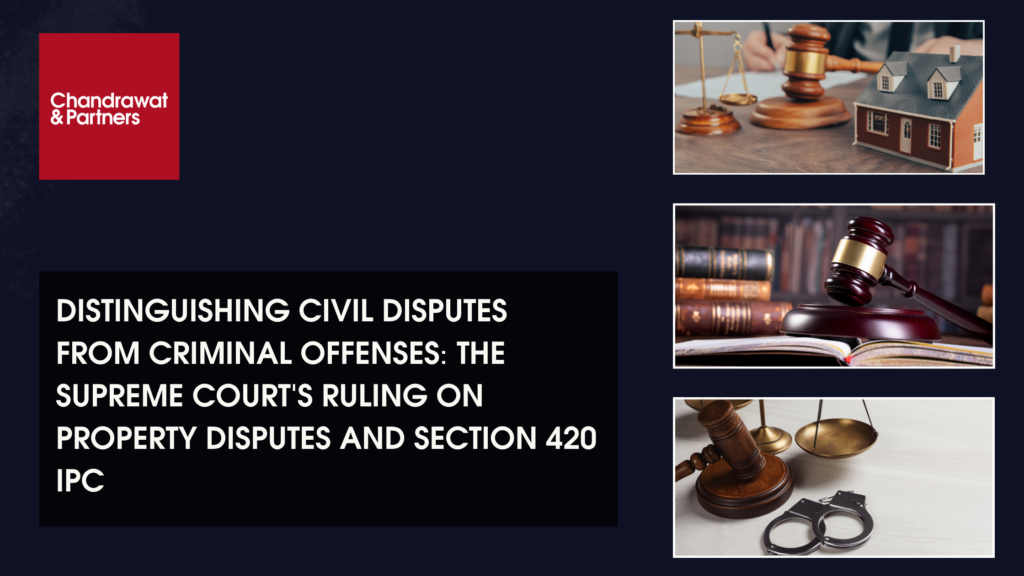Home > Recent Judgements > Distinguishing Civil Disputes From Criminal Offenses: The Supreme Court’s Ruling On Property Disputes And Section 420 Ipc
Jan 09, 2025
INTRODUCTION
The Supreme Court of India in the landmark case Jit Vinayak Arolkar versus State of Goa & ors, the heart of the dispute is a property known as “capnivoril guera,” and registered in the Land Registration Office of Bardez. The legal conflict arose between the appellant and the respondent, with the latter claiming to have inherited an undivided share of the property. The dispute escalated when the appellant, acting as the power of attorney for the legal heirs of the original owner, sold a portion of the property. The respondent argued that the sale of the entire property by the appellant was unauthorized, as the vendors only possessed an undivided share.
Section 420 of the Indian Penal Code (“IPC”) deals with the crime of cheating and dishonestly inducing someone to deliver property or alter valuable documents:
- The punishment for this crime is imprisonment for up to seven years and a fine.
- To be convicted under this section, the prosecution must prove that the accused cheated someone and dishonestly induced them to deliver property.
- The accused must have had a dishonest intention from the beginning to be held guilty.
KEY ISSUES
- Whether the registration of an FIR under Section 420 of the IPC for cheating is justified when the dispute pertains to the ownership and rightful transfer of property, which is primarily a civil matter?
- Whether a sale deed executed by a power of attorney holder on behalf of legal heirs, without the full consent of all co-owners, can amount to cheating under Section 420 IPC, in the absence of fraudulent inducement or deceit?
- What is the appropriate threshold for initiating criminal proceedings in cases involving property disputes, and how should courts balance civil litigation with criminal investigations?
JUDGMENT
This judgment underscores the importance of ensuring that criminal law is not misused to resolve property disputes that can be dealt with in civil courts and it provides clarity on the interpretation of Section 420 of the IPC, particularly in cases where property transactions are contested in the case shows how courts should carefully look at police complaints when they are filed long after the actual incident happened. It is especially important for judges to check if someone is misusing criminal law just to gain an advantage in a civil property dispute. In simpler terms, the courts need to make sure that people are not turning property disagreements into criminal cases just to pressure the other party, when the matter should really be handled as a civil case.
OBSERVATION
The Supreme Court threw out the police complaint in this case, teaching us an important lesson: we need to be clear about the difference between property disputes and actual crimes. While the respondent might have real concerns about who owns the property, filing a criminal case was not the right way to handle it. This decision shows that people should not rush to file criminal charges when the real issue is about property rights.
The case reminds everyone that if you are in a fight over property, you should think carefully about how to handle it legally. Using criminal charges just to pressure the other person is not right it wastes time, money, and the court’s resources. Instead, property disputes should usually be solved through civil courts, where these matters belong.
For more information or queries, please email us at
[email protected]





